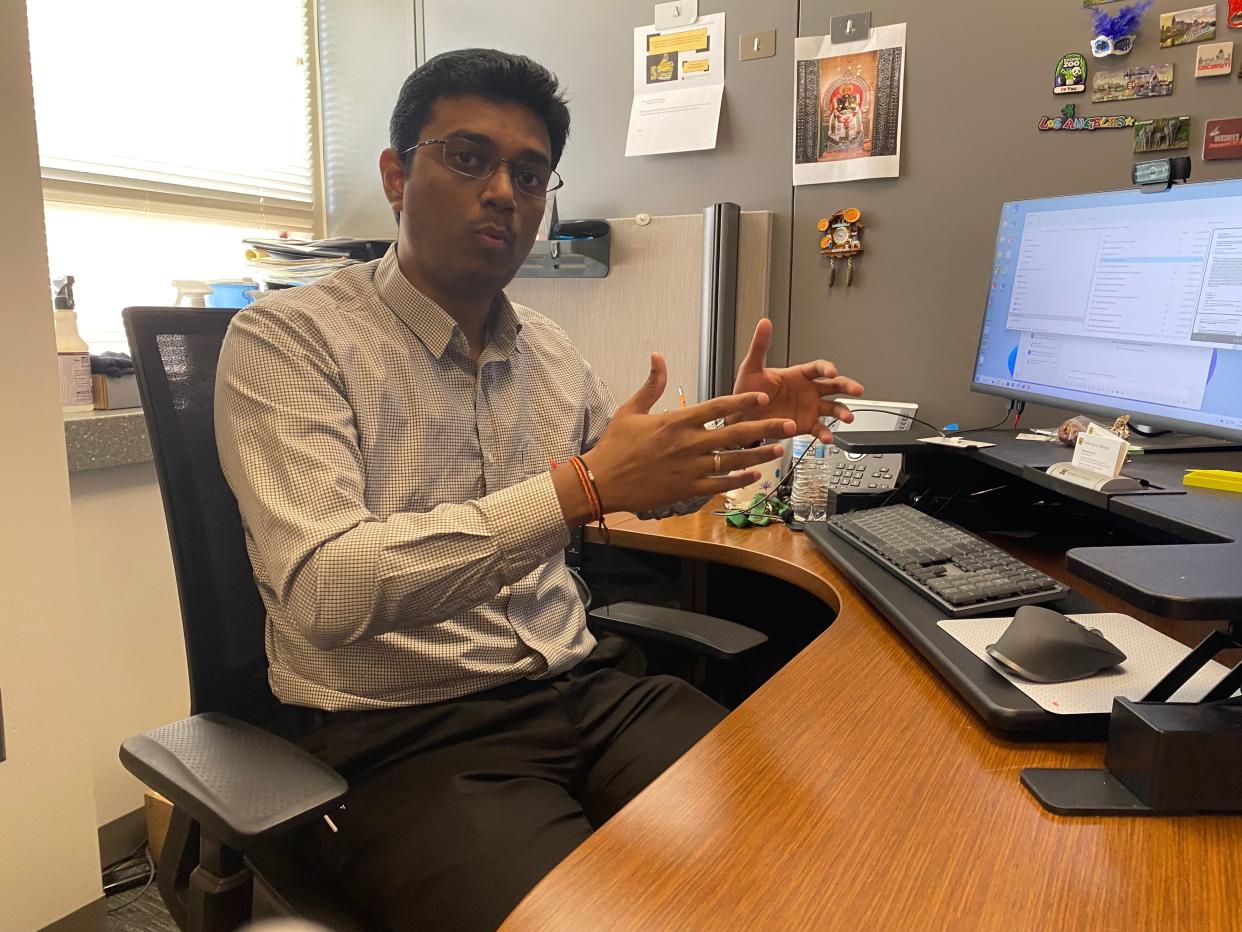MU professor uses AI algorithm to improve airline customer service with 11 recommendations

Sharan Srinivas knows what airline customers want. He asked artificial intelligence.
It's not quite that simple. First he created a model algorithm, trained it and used it to analyze some 400,000 customer reviews on social media and other sources, a process taking five hours or so.
It turns out, customers want more leg room and self-cleaning lavatories, naming a couple of the top wants.
Srinivas is a University of Missouri assistant professor in industrial systems and engineering and marketing. He spoke Thursday in Lafferre Hall about his study "passenger intelligence as a competitive opportunity: unsupervised text analytics for discovering airline-specific insights from online reviews." It was published in Annals of Operation Research.
"The airline industry is very competitive," Srinivas said. "These companies are always looking for a competitive advantage."
Airlines survey their customers, but that only reveals so much, he said.
"On social media, people tend to post freely," Srinivas said.
It's a way companies can learn more about their customers, he said.
"Our models go deeper and tell you the root cause" of complaints, Srinivas said.
His work came up with 11 recommendations for airlines.
First-class and business-class customers have few complaints, he said. Most customers also like the hot meals, beverage choices and entertainment options on flights. They also like the service flight attendants provide.
"The key factor most customers look at is cost," Srinivas said.
Seating in the economy class generates many complaints, leading to a recommendation of developing seating that can be reconfigured based on the number of passengers on a flight.
"The technology is there," Srinivas said.
It might be developed when airlines update their fleets, he said.
"Customers are always dissatisfied with seating," Srinivas said.
An automatic ultraviolet cleaning systems for airplane lavatories that cleans after each use is another recommendation.
"Now we have shown this is what the customer wants," Srinivas said.
Because airlines operate on thin profit margins, the algorithm gives them a way to prioritize their spending.
Lost luggage and delayed flights are two other typical complaints, to which Srinivas said there are recommendations that should be implemented easily and with little cost.
Using radio frequency tags on luggage instead of the current barcode tags is one recommendation. Another is providing more frequent updates related to their baggage on customers' phones.
There's a recommendation to use analytical models to optimize flight schedules and time buffers between flights.
"One of the common reason flights are delayed is the connecting flight is being delayed," he said.
The plan is to integrate the algorithm into an app so airlines can analyze customer data in real time, he said.
The other recommendations are:
Redesign the overhead baggage bins.
Implement seat height and temperature adjustment capabilities.
Use an artificial intelligence-based approach for monitoring equipment health.
Introduce a more flexible booking policy without cancellation charges and change fees.
Provide ticketing agents with better training and social praise to improve morale.
Use biometrics and blockchain technology to eliminate the need to present identification documents at multiple checkpoints.
Srinivas said he has heard feedback from officials with European airlines who said reconfigurable seating and self-cleaning lavatories interest them.
"Those things are being seriously considered," Srinivas said.
The information will be useful in a competitive airline market, Srinivas said.
"They are able to prioritize in terms of what customers value most," he said.
Roger McKinney is the Tribune's education reporter. You can reach him at rmckinney@columbiatribune.com or 573-815-1719. He's on Twitter at @rmckinney9.
This article originally appeared on Columbia Daily Tribune: Improving airline customer service using MU-developed AI algorithm

